 May 3, 2018 John E. Ross, KD8IDJ, Editor
| ||||||||||||||||||||
ARRL Counting Down to Hamvention® 2018 Hamvention® 2018, May 18-20 at the Greene County Fairgrounds and Expo Center in Xenia, Ohio, is largest annual Amateur Radio gathering in the US, and sanctioned as the 2018 ARRL Great Lakes Division Convention. ARRL EXPO -- a large exhibit area in Building 2 ("Tesla" Building) -- will serve as the hub for ARRL activities, booths, and program representatives. More than 90 team members will support ARRL EXPO, including 18 ARRL Headquarters staffers. Recent additions to the ARRL EXPO guide include schedules for the ARRL Stage and "Meet the Authors" table.
At the always-popular ARRL Membership Forum at noon on Saturday in Room 3, Great Lakes Division Director Dale Williams, WA8EFK, will share an update on proposed new guidelines for Amateur Radio Emergency Service® (ARES®) volunteers. He'll also discuss plans for a new volunteer management software system, ARES Connect. Willams is leading a team that is seeking to upgrade ARES training and ensure the service continues to be a valuable partner for its served agencies into the future. Amateur Radio Case Attracts Attention of FCC Commissioner FCC Commissioner Michael O'Rielly has used the latest chapter of an Amateur Radio proceeding to reiterate his call that the Commission abolish its Administrative Law Judge (ALJ) system. The long-standing case involves efforts by William F. Crowell, W6WBJ (ex-N6AYJ), of Diamond Spring, California, to renew his license. Late last week, the FCC denied reconsideration of Crowell's petition to have the Commission assign a new ALJ to his case, arguing that the current ALJ, Richard L. Sippel, is biased against him. Attaching his own comments to a Memorandum and Opinion Order (MO&O) released on April 26, O'Rielly said he approved the Commission's opinion that Crowell's appeal was justifiably denied, but he expressed concern that the ALJ "took unnecessary actions" in Crowell's case and in another unrelated proceeding.
"On a larger scale, complaints about the ALJ process are not isolated incidents, but paint a picture of questionable decisions coupled with an elevated level of inefficiency," O'Rielly said in comments attached to the MO&O. "It seems to me that, too often, the Commission has had to reverse the decisions of the ALJ or address one ALJ decision or another. This reality only reaffirms my call to consider eliminating the ALJ process altogether." It has been 10 years since the FCC set Crowell's license renewal application for hearing, and nearly as long since Crowell requested disqualification of the ALJ assigned to his case. Crowell's license renewal hearing centered on whether he had violated FCC Part 97 rules by intentionally interfering with and/or otherwise interrupting radio communications, transmitting one-way communications, indecent language, and music, and whether he is qualified to be and remain a Commission licensee and have his renewal application granted. In 2016, the FCC imposed a $25,000 fine on Crowell for intentionally interfering with the transmissions of other radio amateurs and transmitting prohibited communications, including music. The penalty included "an upward adjustment reflecting Mr. Crowell's decision to continue his misconduct after being warned that his actions violated the Communications Act and the Commission's rules," the FCC said at the time. "Mr. Crowell does not deny that he made the transmissions that prompted the fine, but argued, in large part, that those transmissions were protected by the First Amendment," the Forfeiture Order said. The FCC concluded in this month's MO&O, "We have examined Crowell's claims of bias in accordance with our precedent, a task made more difficult because Crowell provides virtually no detailed factual support or references to the record for his allegations." Crowell's license, which expired in 2007, has not been renewed, but Crowell may continue to operate while his renewal application is pending. Collegiate Radio Amateur Wins Radio Club of America's "Young Achiever Award" ARRL member Ruth Willet, KM4LAO, a 19-year-old student at Michigan's Kettering University, has received the Radio Club of America's "Young Achiever Award." The RCA Young Achiever Award is presented to students of high school age or younger who have demonstrated excellence and creativity in wireless communications, and who have delivered a presentation at the annual RCA Technical Symposium. Receiving the award allowed her to attend the International Wireless Communications Expo (IWCE) held in Orlando in early March.
"I was shocked to have received this award. I never dreamed I would be able to attend such a prestigious wireless event," Willet said in an article for Kettering University News. "It was an honor be recognized by the Radio Club of America and to be presented with this award. It was an eye-opening experience for me to be exposed to the field of wireless communications and to be introduced to the discussions taking place among first responders and the government regarding emergency situation preparedness." Willet, who is from Lawrenceville, Georgia, is the recipient of the ARRL Rocky Mountain Division Scholarship. At Kettering, she is pursuing a double major in mechanical engineering and engineering physics. She is president of her school's recently revived Amateur Radio club, GMTE Amateur Radio & Electronics Club, K8HPS. "As an Amateur Radio operator, I've mostly only experienced the hobby side of radio," Willet said. "This conference allowed me to see a broad range of applications for radio and technology.... It was very energizing to attend all sorts of workshops and seminars, and learn how much our daily lives are touched by the field of wireless communications." Read more. Annual Armed Forces Day Crossband Communication Test Set for Saturday, May 12 The Military Auxiliary Radio System (MARS) will sponsor the traditional military/Amateur Radio communication tests to mark the 67th annual Armed Forces Day (AFD) on Saturday, May 12. Armed Forces Day is May 19, but the AFD Crossband Military-Amateur Radio event traditionally takes place 1 week earlier in order to avoid conflicting with Hamvention. Complete information, including military stations, modes, and frequencies, is available on the US Army MARS website.
These tests give Amateur Radio operators and shortwave listeners (SWLs) a chance and a challenge to demonstrate individual technical skills in a tightly controlled exercise scenario and to receive recognition from the appropriate military radio station. QSL cards will be available for stations successfully contacting participating military stations. Military stations will transmit (USB, unless otherwise noted on the schedule) on selected military frequencies and will announce the specific amateur frequencies they are monitoring. MARS stressed that frequencies used for the test will not impact any public or private communications and will not stray outside the confines of the exercise. An Armed Forces Day test message will be transmitted utilizing the Military Standard (MIL-STD) Serial PSK waveform (M110) followed by MIL-STD Wide Shift FSK (850 Hz RTTY), as described in MIL-STD 188-110A/B. Technical information regarding these waveforms is available. The AFD test message will also be sent at 0300 UTC in CW. Those who want a QSL should complete the request form on the MARS website. Third Public Test of FT8 "DXpedition Mode" Set for May 5 A third public test of the developing FT8 "DXpedition Mode" is set for Saturday, May 5, the WSJT development group has announced. A fourth "release candidate" is now available, and participants in the May 5 public test should install WSJT-X version 1.9.0-rc4 beforehand.
"If you have legitimate access to more than one call sign (spouse, a club call, or whatever), please feel free to call and work each Fox more than once," Taylor said. "The more Hounds, the better; we want the test pileup to be as deep as possible." The third public test will include three 1-hour sessions.
Any last-minute instructions will be announced on the Ping Jockey Relief chat page. Installation packages for WSJT-X v1.9.0-rc4 on Windows, Linux, Macintosh, and Raspbian Jessie have been posted on the WSJT website. Participants are asked to report their test results and any problems encountered to the WSJT-X development lists on sourceforge.com or to the Yahoo WSJT-X Development Group reflector. You must be a subscriber in order to post to these lists. The third beta release of the new DXpedition Mode has been tested over the past several weeks, including during a public test on April 7. "A few additional bugs were identified and corrected, and the -rc4 release also includes some minor enhancements," Taylor said. "A general availability (GA) release of WSJT-X version 1.9.0 will be announced at a suitable time, probably in the near future. After that you should stop using any -rc# release candidate." The Doctor Will See You Now! "Kits and Kit Building" is the topic of the new (April 26) episode of the "ARRL The Doctor is In" podcast. Listen...and learn!
Every 2 weeks, your host, QST Editor-in-Chief Steve Ford, WB8IMY, and the Doctor himself, Joel Hallas, W1ZR, will discuss a broad range of technical topics. You can also e-mail your questions to doctor@arrl.org, and the Doctor may answer them in a future podcast. Enjoy "ARRL The Doctor is In" on Apple iTunes, or by using your iPhone or iPad podcast app (just search for "ARRL The Doctor is In"). You can also listen online at Blubrry, or at Stitcher (free registration required, or browse the site as a guest) and through the free Stitcher app for iOS, Kindle, or Android devices. If you've never listened to a podcast before, download our beginner's guide. New Book, Portable Operating for Amateur Radio, is Now Shipping Grab your gear and head outdoors with this new book from ARRL, Portable Operating for Amateur Radio by Stuart Thomas, KB1HQS.
Anyone can give portable operating a try. Portable operators use HF and VHF bands, as well as SSB, FM, CW, and digital modes. There's something for everyone, no matter your license class or interests. Whether you want to activate from a picnic table at a nearby park or a remote summit after a backcountry hike, Portable Operating for Amateur Radio offers a wealth of practical information to help make your portable Amateur Radio operations successful. Portable Operating for Amateur Radio is available from the ARRL Store or your ARRL Dealer. (ARRL Item no. 0802), ISBN: 978-1-62595-080-2, $22.95 retail, special ARRL Member Price $19.95). Call 860-594-0355 or, toll-free in the US, 888-277-5289. It will also be available as an e-book for the Amazon Kindle. Report: Former Hamvention® Home Hara Arena Getting a New Owner The Dayton Daily News reported this week that a Louisville, Kentucky-based developer, Michael Heitz, of Garrett-Day LLC Properties, is in the process of buying Hara Arena, which served as home to Dayton Hamvention® from 1964 until 2016.
The IRS put the Hara Arena complex on the auction block last August to satisfy a federal tax lien, but no successful bidder came forward. An IRS staff member involved in the 2017 auction told ARRL early this year that the agency would not try again to auction the parcel, but suggested that other lien holders, including a mortgage lender and the Town of Trotwood, might go that route. At one point, the asking price for Hara Arena was $775,000. The Dayton Daily News reported in March that Hara property owner-trustees owed back taxes plus around $350,000 to banks. Heitz is known for buying distressed properties and getting them "shovel ready." He plans a Monday news conference to discuss the purchase and his plans. According to the Dayton Daily News, Heitz has purchased other properties in the area by buying up tax and property liens, and his reputation for acquiring derelict properties and turning them around goes back several years. A former West Virginia University basketball player and distance cyclist, the 7-foot-tall Heitz is said to be a fearless investor. The Wampler family had owned and operated Hara Arena since its humble origins in the 1950s, when Wampler Ballarena -- then a dance hall and now an exhibit hall familiar to Hamvention visitors -- was built in what had been a family-owned orchard. When Hara closed in August 2016, the economic hit to the Dayton area was estimated to be $36 million a year. Deadline Approaching to Submit Philip J. McGan Memorial Silver Antenna Award Nominations Friday, May 18, is the deadline to submit nominations for ARRL's annual Philip J. McGan Memorial Silver Antenna Award. The award celebrates efforts on the part of an individual ARRL member to boost awareness and understanding of Amateur Radio's services and benefits to the public. The ARRL Public Relations Committee will recommend a winner, if any, to the ARRL Board of Directors, which will announce the Award recipient at its July meeting.
Activities for which the McGan Award may be presented include efforts specifically directed at focusing the media's and the general public's attention on the value of Amateur Radio. This may include such traditional methods as generating media coverage of a specific event, or such non-traditional methods as hosting a radio show or being an active public speaker. The award is given to an individual who must be an ARRL member in good standing at the time of nomination. The nominee must not be compensated for any public relations work involving Amateur Radio -- including payment for articles -- and may not be a current ARRL Officer, Director, Vice Director, paid staff member, or member of the selection committee. Check out the specific criteria for nomination and nomination form, or contact ARRL Communication Manager Dave Isgur, KC1JMX, to obtain a form. The names of past McGan Memorial Silver Antenna Award winners have been posted on the ARRL website. Former Orange Section Manager, Veteran ARRL Volunteer Sandi Heyn, WA6WZN, SK Well-known ARRL stalwart and former Orange Section Manager Sandra Mae "Sandi" Heyn, WA6WZN, of Costa Mesa, California, died on April 28 after a lengthy illness. An ARRL Life Member, she was 75. Sandi Heyn was the wife of ARRL Honorary Vice President and past ARRL Southwestern Division Director Fried Heyn, WA6WZO, who relied on her as his trusted assistant. The couple often appeared together at ARRL and other Amateur Radio functions, and Sandi Heyn nearly always accompanied her husband to ARRL Headquarters for the ARRL Board's twice-yearly meetings during his years as a Director. As Fried Heyn said, "We were joined at the hip." Married for 57 years, the Heyns continued as Amateur Radio ambassadors even after their official League service concluded.
She was also a US Army Military Affiliate Radio Service (MARS) volunteer, a member of several Amateur Radio clubs in California, and was a Quarter Century Wireless Association (QCWA) Life Member. She regularly volunteered at the ARRL booth and in the Amateur Radio reception during the annual National Association of Broadcasters conventions in Las Vegas. She played a significant role in organizing the 1992 ARRL National Convention in Los Angeles. In accordance with her wishes, Sandi Heyn's body will be donated to science. Services are not planned at this time. In Brief...
The Orange County (New York) Amateur Radio Club (OCARC) has been presented with a Hiram Percy Maxim Society plaque. The plaque recognizes the club's donations to the ARRL Legislative Issues Advocacy and Spectrum Defense funds, ARRL Development Manager Lauren Clarke, KB1YDD, announced. ARRL Hudson Division Director Mike Lisenco, N2YBB, presented the Maxim Society plaque to OCARC President Bruce Baccaro, K2ULZ, on April 20. "The club is very proud to be one of only 10 clubs nationwide to be inducted into the Maxim Society," Lisenco said.
The K7RA Solar Update Tad Cook, K7RA, Seattle, reports: Sunspots disappeared again this week, with a blank sun on April 28, and every day since. Average daily sunspot numbers dropped from 20 to 3.6, while average daily solar flux decreased from 73.4 to 69.3.
Predicted solar flux is 67 on May 3-4; 68 and 69 on May 5-6; 70 on May 7-10; 68 on May 11-13; 70 on May 14-28; 68 on May 29 - June 9, and 70 on June 10-16. Predicted planetary A index is 5 on May 3-5; 16, 18, and 14 on May 6-8; 8 on May 9-10; 5 on May 11-16; 42, 12, and 8 on May 17-19; 5 on May 20-June 1; 8, 15, 12, 10, and 8 on June 2-6; 5 on June 7-12, and 42, 12, 8, and 5 on June 13-16. Sunspot numbers for April 26-May 2 were 14, 11, 0, 0, 0, 0, and 0, with a mean of 3.6. The 10.7-centimeter flux was 69.4, 68.7, 70.2, 71.1, 70.2, 68.4, and 67.1, with a mean of 69.3. Estimated planetary A indices were 4, 6, 4, 4, 6, 3, and 4, with a mean of 4.4. Estimated mid-latitude A indices were 4, 5, 5, 3, 10, 3, and 5, with a mean of 5. Send me your reports or observations Just Ahead in Radiosport
See the ARRL Contest Calendar for more information. For in-depth reporting on Amateur Radio contesting, subscribe to The ARRL Contest Update via your ARRL member profile e-mail preferences. Upcoming ARRL Section, State, and Division Conventions
Find conventions and hamfests in your area. | ||||||||||||||||||||
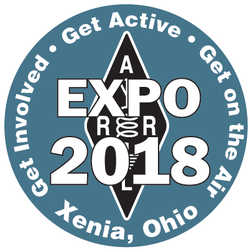
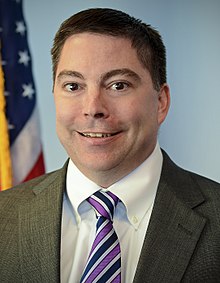
.jpg)
 The annual celebration is a unique opportunity to test two-way communication between radio amateurs and military stations (authorized under §97.111 of the Amateur Service rules). It features traditional military-to-amateur crossband SSB voice, CW, practice using legacy interoperability waveforms, and the opportunity for participating hams to utilize more modern military modes, such as MIL-STD Serial PSK and Automatic Link Establishment (ALE). Military stations and Amateur Radio stations are authorized to communicate directly on certain 60-meter interoperability channels.
The annual celebration is a unique opportunity to test two-way communication between radio amateurs and military stations (authorized under §97.111 of the Amateur Service rules). It features traditional military-to-amateur crossband SSB voice, CW, practice using legacy interoperability waveforms, and the opportunity for participating hams to utilize more modern military modes, such as MIL-STD Serial PSK and Automatic Link Establishment (ALE). Military stations and Amateur Radio stations are authorized to communicate directly on certain 60-meter interoperability channels.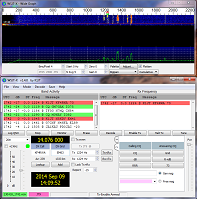 "Once again, the goal is to simulate a rare DXpedition pileup by having many stations ('Hounds') calling and trying to work a designated pseudo-DXpedition station ('Fox'). Everyone participating in the test must use WSJT-X v1.9.0-rc4," Joe Taylor, K1JT, said on behalf of the WSJT development team. Taylor urged participants to "read, understand, and carefully follow" the
"Once again, the goal is to simulate a rare DXpedition pileup by having many stations ('Hounds') calling and trying to work a designated pseudo-DXpedition station ('Fox'). Everyone participating in the test must use WSJT-X v1.9.0-rc4," Joe Taylor, K1JT, said on behalf of the WSJT development team. Taylor urged participants to "read, understand, and carefully follow" the 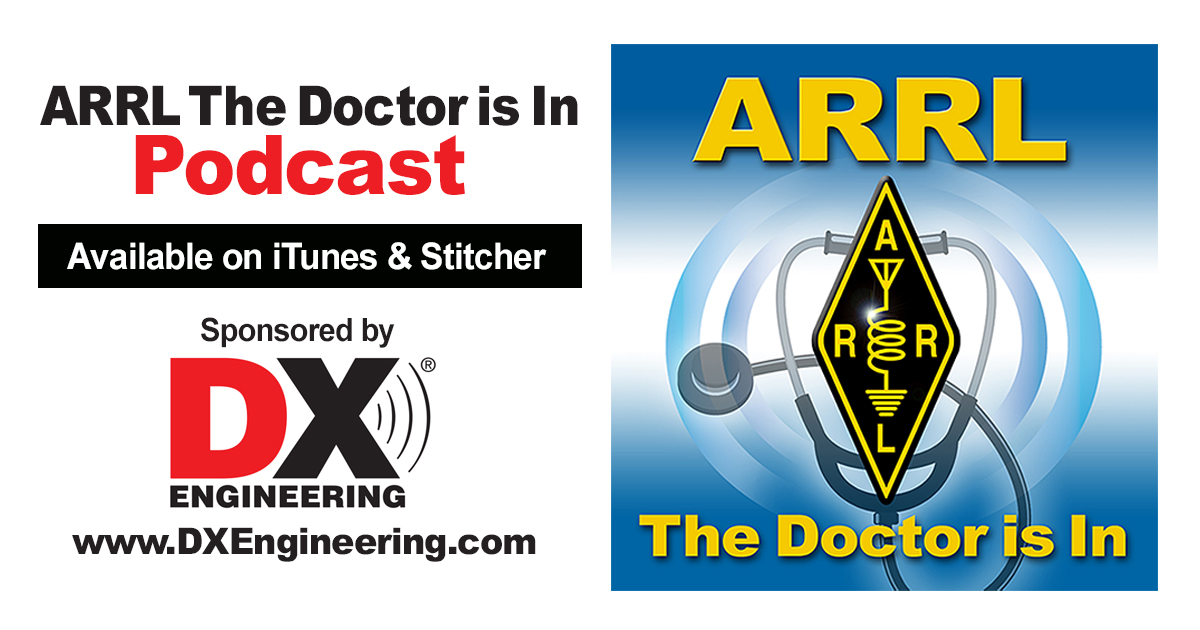 Sponsored by
Sponsored by 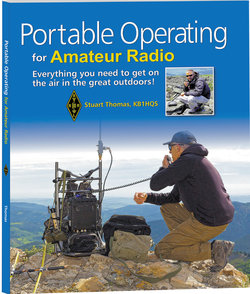 Amateur Radio stations have traditionally been associated with a table full of gear in a home station. In recent years, that has changed with the increasing popularity of operating portable, away from home. A new generation of compact, full-featured, portable radios combines with modern battery technology to make it easier than ever to set up your station and enjoy Amateur Radio in the great outdoors. Added to the increase in organized outdoor operating activities, clubs, and programs, it's no wonder that ham radio operators are inspired to venture into portable operations.
Amateur Radio stations have traditionally been associated with a table full of gear in a home station. In recent years, that has changed with the increasing popularity of operating portable, away from home. A new generation of compact, full-featured, portable radios combines with modern battery technology to make it easier than ever to set up your station and enjoy Amateur Radio in the great outdoors. Added to the increase in organized outdoor operating activities, clubs, and programs, it's no wonder that ham radio operators are inspired to venture into portable operations..jpg) Heitz told the Dayton Daily News that he bought out income tax liens on the property from Montgomery County and is hoping to close on some bank liens later this week. It's not known how much Heitz has invested in the property so far. The purchase includes the six-building Hara Arena complex and some 120 acres of real estate, 25 of them devoted to parking. Heitz said his priority is to "clean it up and secure the property." Since its closing in 2016, Hara Arena has been visited by camera-carrying
Heitz told the Dayton Daily News that he bought out income tax liens on the property from Montgomery County and is hoping to close on some bank liens later this week. It's not known how much Heitz has invested in the property so far. The purchase includes the six-building Hara Arena complex and some 120 acres of real estate, 25 of them devoted to parking. Heitz said his priority is to "clean it up and secure the property." Since its closing in 2016, Hara Arena has been visited by camera-carrying .png) The Award's namesake, journalist Philip J. McGan, WA2MBQ (SK), served as the first chairman of the ARRL's Public Relations Committee, and helped reinvigorate the League's commitment to public relations. The McGan Award recognizes a radio amateur who has demonstrated success in Amateur Radio public relations and who best exemplifies McGan's volunteer spirit.
The Award's namesake, journalist Philip J. McGan, WA2MBQ (SK), served as the first chairman of the ARRL's Public Relations Committee, and helped reinvigorate the League's commitment to public relations. The McGan Award recognizes a radio amateur who has demonstrated success in Amateur Radio public relations and who best exemplifies McGan's volunteer spirit.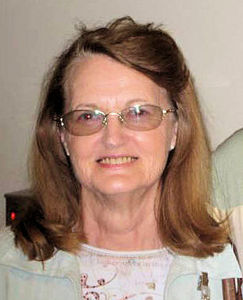 In addition to her service as Orange Section Manager from 1983 until 1985, Sandi Heyn served as a member of the ARRL Planning Committee during ARRL President Vic Clark's, W4KFC, administration, was Orange Section Emergency Coordinator, and president of the Young Ladies Radio League in 1983. She was Orange Section ARRL Affiliated Club Coordinator from 1987 until 2003, and she chaired the Orange County Council of Amateur Radio Organizations in 1991 and the Los Angeles Area Council of Amateur Radio Clubs in 1992. Sandi Heyn received the ARRL Southwestern Division Meritorious Service Award in 2001.
In addition to her service as Orange Section Manager from 1983 until 1985, Sandi Heyn served as a member of the ARRL Planning Committee during ARRL President Vic Clark's, W4KFC, administration, was Orange Section Emergency Coordinator, and president of the Young Ladies Radio League in 1983. She was Orange Section ARRL Affiliated Club Coordinator from 1987 until 2003, and she chaired the Orange County Council of Amateur Radio Organizations in 1991 and the Los Angeles Area Council of Amateur Radio Clubs in 1992. Sandi Heyn received the ARRL Southwestern Division Meritorious Service Award in 2001.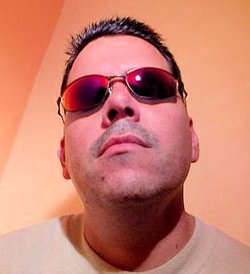 A Puerto Rico radio amateur involved in hurricane recovery was among those who died when a Hercules C-130 aircraft crashed on May 2, killing all aboard. Among the nine fatalities was Eric Circuns, WP4OXB, of Rio Grande, Puerto Rico. The cargo plane, attached to the Puerto Rico Air National Guard's 156th Airlift Wing, went down shortly after takeoff from Georgia while on a routine mission. "Eric had been part of this unit, and this aircraft had served during both Hurricane Irma and Maria," ARRL Southeastern Division Assistant Director and Assistant Puerto Rico Section Manager Jose "Otis" Vicens, NP4G, said in a statement. "The people of Puerto Rico thank him for his service and ultimate sacrifice. He will be remembered." According to media accounts, the more than 60-year-old aircraft underwent repairs in Savannah in April. It had been used in several hurricane relief and recovery efforts and was on its way to Arizona for decommissioning.
A Puerto Rico radio amateur involved in hurricane recovery was among those who died when a Hercules C-130 aircraft crashed on May 2, killing all aboard. Among the nine fatalities was Eric Circuns, WP4OXB, of Rio Grande, Puerto Rico. The cargo plane, attached to the Puerto Rico Air National Guard's 156th Airlift Wing, went down shortly after takeoff from Georgia while on a routine mission. "Eric had been part of this unit, and this aircraft had served during both Hurricane Irma and Maria," ARRL Southeastern Division Assistant Director and Assistant Puerto Rico Section Manager Jose "Otis" Vicens, NP4G, said in a statement. "The people of Puerto Rico thank him for his service and ultimate sacrifice. He will be remembered." According to media accounts, the more than 60-year-old aircraft underwent repairs in Savannah in April. It had been used in several hurricane relief and recovery efforts and was on its way to Arizona for decommissioning.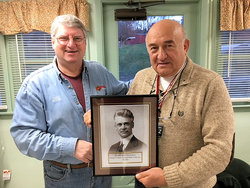
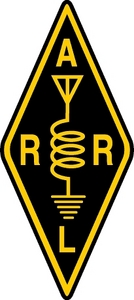 ARRL has suspended registration for "Introduction to Emergency Communications" (EC-001). Registration was halted on April 30, after ARRL learned that the online platform provider for the course -- Connecticut Distance Learning Consortium (CTDLC) -- is being dissolved, effective July 1, according to CTDLC's parent, Charter Oak State College. CTDLC officials cited the fiscal challenges that the Connecticut state college and university system and the state as a whole are facing as the reason for shuttering CTDLC. As plans are made to move the course content to a new delivery platform, ARRL decided to halt registration. Anyone who signed up for the EC-001 session that starts on May 30 will receive a refund. ARRL has been developing new EC-001 content and will intensify the process of selecting a new platform to deliver it.
ARRL has suspended registration for "Introduction to Emergency Communications" (EC-001). Registration was halted on April 30, after ARRL learned that the online platform provider for the course -- Connecticut Distance Learning Consortium (CTDLC) -- is being dissolved, effective July 1, according to CTDLC's parent, Charter Oak State College. CTDLC officials cited the fiscal challenges that the Connecticut state college and university system and the state as a whole are facing as the reason for shuttering CTDLC. As plans are made to move the course content to a new delivery platform, ARRL decided to halt registration. Anyone who signed up for the EC-001 session that starts on May 30 will receive a refund. ARRL has been developing new EC-001 content and will intensify the process of selecting a new platform to deliver it.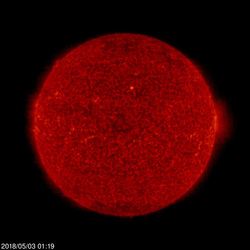 Average daily planetary A index declined from 11.9 to 4.4, and average mid-latitude A index went from 8.6 to 5.
Average daily planetary A index declined from 11.9 to 4.4, and average mid-latitude A index went from 8.6 to 5.







